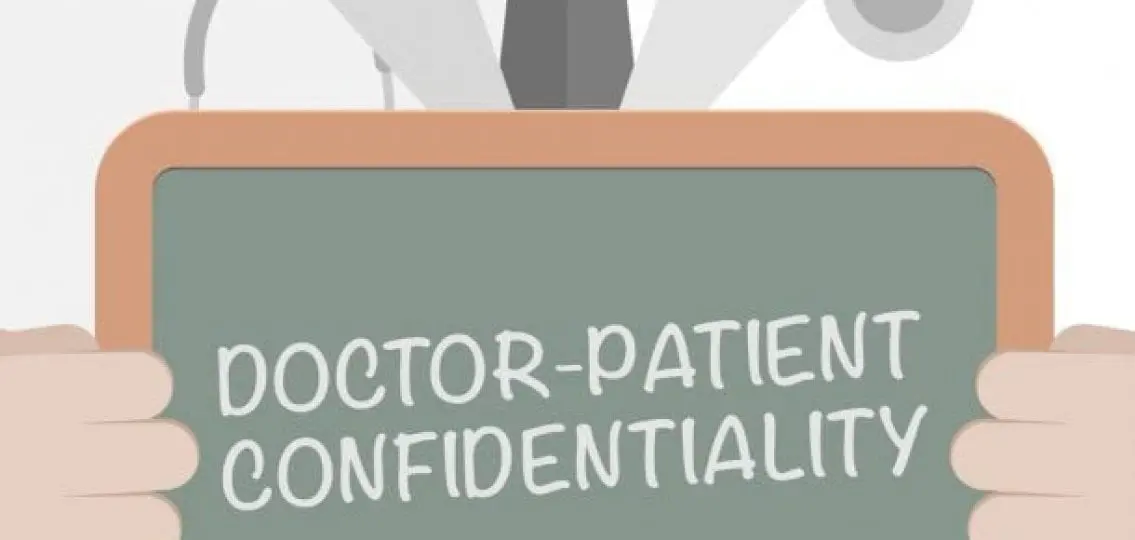“I think it’s just the flu.”
I trusted our pediatrician, but my mother’s instinct was telling me he was wrong about my 14-year-old son’s flu diagnosis. His twin sister recently had pneumonia and I thought his cough sounded like hers, so I requested a chest X-ray. My gut reaction was correct; my son had pneumonia. As a mom of three kids, this wasn’t the first time I’ve disagreed with the doctor.

Even though teens are old enough to articulate their symptoms, it still might be difficult to diagnosis their illness, such as in our situation where pneumonia has similar symptoms as the flu.
People may be hesitant to disagree with their doctor’s diagnosis, but a recent article in Time states that, “In 1999 the Institute of Medicine found that 98,000 Americans were dying annually from medical errors. Twenty years later, deadly health care mistakes may be just as prevalent.”
What Can You Do If You Disagree with the Pediatrician’s Diagnosis?
“As a physician and as a person who has a chronic illness, I have experience on both sides of this difficult issue. The problem is one of imbalance: the doctor has expert knowledge and experience that can be difficult to dispute,” says Dr. Mark D Rego, Assistant Clinical Professor of Psychiatry at Yale University School of Medicine.
He goes on to explain, “Even as a physician who educates himself on the relevant technical material beforehand, I can find myself at a loss for knowing what to believe.”
If you disagree with your child’s pediatrician about their diagnosis you can follow these suggestions:
1. Request more tests
In my case, I asked for blood tests, X-rays, or other tests that could provide a concrete diagnosis and the pediatrician was happy that I requested the additional tests since it changed his course of treatment. The test showed fluid in my son’s lungs which is undisputable evidence of pneumonia.
2. Assess the situation
Dr. Rego says it is important to keep in mind that diagnoses do not have perspectives, egos, axes to grind or points to make. He says, “Diagnoses go only by the facts.”
When you are questioning a doctor’s diagnosis, Dr. Rego recommends prefacing your comments by saying, “With all due respect” or “I know you are an expert, but something worries me.” “You should be humble in your speech as well as your thinking,” he says.
Instead of viewing the situation as a disagreement, try asking questions. Dr. Rego suggests considering, “What aspect of the symptoms is not being addressed? Is there is something the doctor is glossing over as if it does not count? Are you not being believed? Are you afraid that you will get sicker and even die?”
After clarifying your concerns, he recommends voicing your concerns and questions directly to the doctor.
3. Get a second opinion
You can seek a second opinion from other pediatricians or specialists. Sometimes seeing another doctor with a different perspective can help to diagnosis the issue.
“Doctors are not always right, but they should pay attention when things do not go well and be prepared to reconsider,” says Dr. Rego.
4. Talk to your friends
Often friends or family members may have experienced similar issues and can provide feedback or recommendations for a specific doctor. But remember: another person’s anecdotal information does not equal an accurate diagnosis in your own situation.
5. Find an expert
Dr. Rego explains that finding an expert isn’t a matter of looking for a doctor that other patients say is “great.” Instead, he says, “Look for someone in a large hospital or medical school.”
He explains that a doctor working in a large hospital or medical school indicates collaboration with other doctors and a more academic approach.
“After you have identified a doctor from a large hospital or medical school, then check Google Scholar. Put in their name and see how many articles they have published on your subject,” Dr. Rego recommends. “If it’s at least five to 10, they know your subject and have seen many people with the problem.”

In my case, we didn’t need to find an expert since my son didn’t have an ongoing chronic issue and our doctor was willing to listen to my concerns and request additional tests. It is important that you feel comfortable to discuss any concerns that you may have with your doctor. If you don’t feel like your concerns are being heard, it may be time to find a new doctor.





